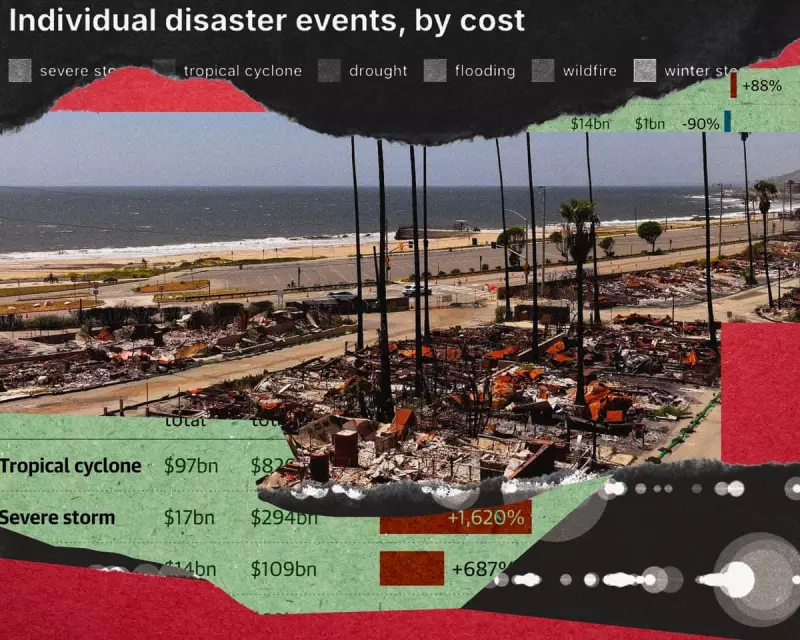
The world is facing an unprecedented financial reckoning from climate change, with new projections indicating that natural disasters will cost the global economy a staggering £1.3 trillion in 2025 alone. This represents a dramatic 40% increase from 2024 figures, signalling an accelerating crisis that threatens to overwhelm national budgets and insurance systems.
The Rising Tide of Climate Costs
According to comprehensive analysis by climate economists, the frequency and intensity of extreme weather events are creating a perfect storm of financial liabilities. From devastating wildfires consuming communities to unprecedented flooding submerging urban centres, the economic impact extends far beyond immediate damage to long-term recovery costs and lost productivity.
Where the Damage Hits Hardest
The research highlights several key areas bearing the brunt of these escalating costs:
- Infrastructure collapse: Roads, bridges and public buildings requiring massive reconstruction
- Agricultural devastation: Crop failures and livestock losses driving food price inflation
- Supply chain disruption: Manufacturing and distribution networks paralysed by extreme conditions
- Healthcare burden: Rising treatment costs for heat-related illnesses and pollution-exacerbated conditions
A Warning for British Coffers
While the global picture appears dire, the United Kingdom faces particular vulnerabilities. The analysis specifically identifies increased flood risk to coastal communities and urban areas, with the potential for billions in damages to homes, businesses and critical infrastructure. The UK's famously variable weather is becoming increasingly volatile and expensive.
The Insurance Industry Under Pressure
Major insurance providers are already reassessing their risk models, with some considering withdrawal from high-risk areas. This could leave homeowners and businesses facing impossible choices between unaffordable premiums or going unprotected against climate threats.
Experts warn that without immediate, coordinated global action to reduce emissions and implement adaptation strategies, these costs will continue to escalate exponentially. The £1.3 trillion price tag for 2025 may soon look modest compared to the climate bills coming due in future decades.





